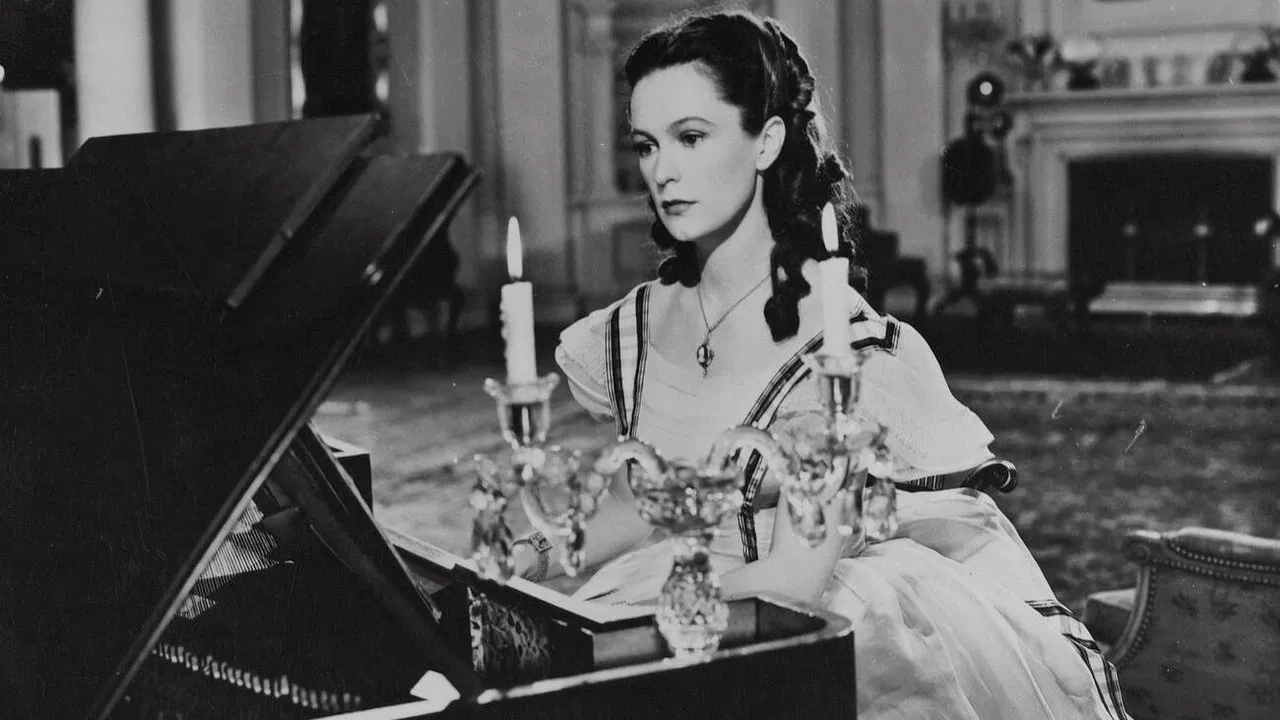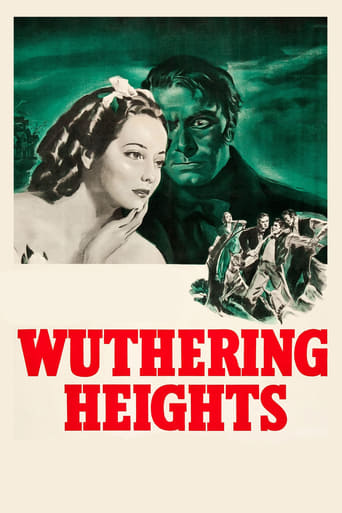

Brilliant and touching
... View MoreThe film makes a home in your brain and the only cure is to see it again.
... View MoreThe film's masterful storytelling did its job. The message was clear. No need to overdo.
... View More.Like the great film, it's made with a great deal of visible affection both in front of and behind the camera.
... View MoreI've seen one other version of Emily Bronte's classic novel, the 1970 one, and I was so terribly bored by it, I completely forgot the story afterwards. Watching the 1939 version was like watching a brand new movie, and while I'd had a couple of plot points spoiled for me, I was quite riveted.For those of you who don't know the classic story, it's a period piece set in the 1800s, about a woman's love for two men and two lifestyles. One man is Heathcliff, a low-class boy she's grown up with. He's wild and free, and when she's with him, she feels the innocence and endless possibilities of childhood. The other man is Edgar, wealthy and belonging to a class she's always longed to be a part of. Choosing Heathcliff means a life of poverty, and choosing Edgar means exchanging fantasy for reality. Who will Kathy choose?While Wuthering Heights was honored by eight nominations during the 1940 Oscar ceremony, it had the misfortune to come out during the same year as Gone with the Wind, so it only walked away with one. While not compared to the great American epic, this is a very good and well crafted film. All the actors give their all and truly embody their characters, which is quite a feat since they've been seen in many, many other roles, so you could easily think, "Oh, that's Laurence Olivier!" or "Oh, that's the wife in 10 North Frederick!" Instead, they are Heathcliff, Isabella, Edgar, and Kathy. For Laurence Olivier fans, this is a must-see. Not only does he show off his fantastic, brooding acting chops, but he looks extremely handsome in this one, too! It's a very tough decision between him and David Niven-in a rare appearance without his mustache. The ladies particularly shine in this movie. Merle Oberon reminded me of Kate Winslet in her spot-on fickle portrayal of Kathy, and while she might seem irrationally cold at first, when she puts on the tears, you won't be able to contain your own. Geraldine Fitzgerald is fantastic and heartbreaking; after this film, I don't see how she was ever cast in a villainous role.If you've never seen a film version of Wuthering Heights, this is an excellent one to start with. And if you're not sure whether or not you'll like the story, here's a helpful hint. If you liked Pride and Prejudice but could stand with a little more gravitas to the story, you'll like Wuthering Heights.
... View MoreAm I the only here who has watched Wuthering Heights numerous times, in the hope that I would finally see what the acclaim was about, just to see Oberon's awful performance which then brings Olivier's down, too, although this isn't one of my favorite Olivier roles either. Oberon's Cathy is spoiled and willfull, but so was Vivien Leigh's Scarlet in Gone with the Wind, yet Leigh is watchable, not a performance worthy of Best Actress, but watchable. Oberon didn't improve with age or experience as an actress, merely a celebrity in the annals of Hollywood. I don't think I'll try watching the movie again. Certainly not one of Hollywood's best of 1939!
... View MoreThis was Laurence Olivier's introduction to an American cinema audience. An actor who has arrived from the English stage with a big reputation. I can only imagine the shock and awe the audience felt when they saw his Heatcliff. Its akin to what modern cinema audience in the 1970s felt when they first saw Robert De Niro or Al Pacino at full throttle. Olivier is wild fury, he brings his character alive and a style of acting that to many would had been alien outside of gangster films of the 1930s.This version of Wuthering Heights only adapts the first half of the book. I think this is the right decision. We can concentrate on the young gypsy boy always treated as an outcast who meets his soul mate in Cathy (Merle Oberon) which blossoms in the wild Yorkshire Moors but they are doomed never to be together.Oberon and Olivier drive this film with a wild, dark, even a supernatural fashion. The cinematography is splendid and so are some of the side characters and the great David Niven is put in the shade in this movie.There have been countless adaptations of the novel but this is a must see.
... View MoreThis is a somewhat stronger adaptation than Ralph Fiennes' 1992 Wuthering Heights, mostly because Laurence Olivier is such a great Heathcliff (though a bit too handsome for the role). This 1939 version is very melodramatic and larger-than-life, which Wuthering Heights is supposed to be.The film has aged quite a bit in its overacted emotions and childish characterization, but all that has a certain charm. Only the scenes when they are children, playing at the cliffs, are unbearable. Merle Oberon is alright as the spoiled Catherine Earnshaw, David Niven as Linton is mostly just boring, but Hugh Williams' Hindley shines with his comical depression and resentment.The film is quite true to the story, but cuts the second half of the novel in its entirety, never introducing the second generation at all. This seems like a good decision for the film, but the end lacks a punch because of it.
... View More